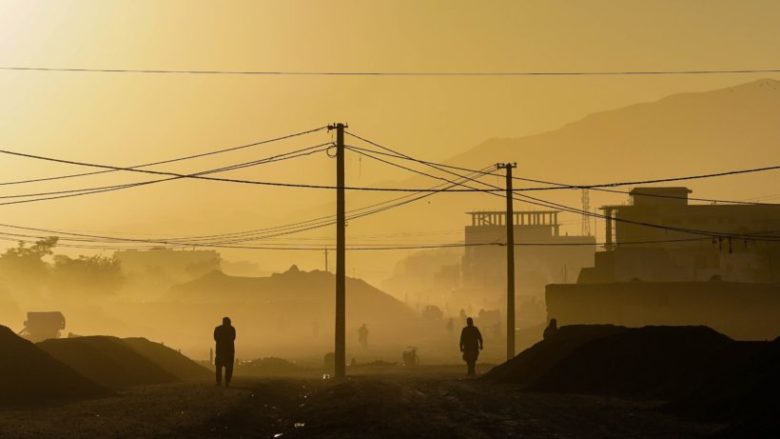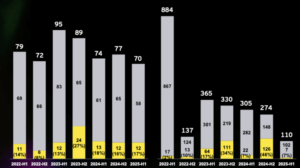The downside of technology: Talibans use social media as a tracking tool

About a week and a half ago, the capital of Afghanistan, Kabul, fell to the Taliban forces. As the city’s defenses fell, journalists, human rights activists, and western armed forces fled for the airport. As the US withdrew its forces and president Ghani left the country in secrecy, the Afghan army gave the city without a fight. The new regime has made leaving the country extremely difficult for civilians.
Many liberal Afghans have fear for their lives, those who reported on the Taliban atrocities, cooked for the American army, or translated for the German Bundeswehr. Women who before went outside without a headscarf have already either left the country or gone into hiding. Women and girls are no longer allowed to go outside without a male companion. Fear spreads as former supporters of the west are being executed.
This was the fate of several friends of the German journalist Hasnain Kazim. With the transpiring events he checked his friends’ social media accounts, and they were nowhere to be found, as if swallowed up by the earth. “I have noticed that I can no longer reach a lot of people via publicly viewable social media channels,” says Kazim. “When I called them on WhatsApp, they told me that they could no longer be present there. Their fear: The Taliban could collect evidence online that they are cooperating with the West.” Similar actions carry the death penalty.
Digital footprints
The Taliban have a huge advantage compared to their reign in the ‘90 and ‘00. Now they have social media and the digital footprints Afghan citizens leave. Nobody expected that the content they posted would ever be a reason for their incarceration or death. “Authoritarian regimes like the Taliban are particularly good at persecuting opponents. Afghans who have posted content online that contradicts the Taliban’s values are at risk,” explains Natasha Lindstaedt, Professor of International Relations with the Middle East at the University of Essex.
The Taliban have also been using fake group chats to track down traitorous activity among its citizens, warns Kazim: “There are some WhatsApp groups that organize people to flee who have worked with the West. The Taliban could of course sneak in or even found such groups themselves.”
Legal Arbitrariness
“In principle, the Taliban allow the use of social media. What they don’t allow is some content, ”explains Kazim. Viewing photos of unveiled women online would be a violation of Sharia law. Spreading opinions that do not agree with the Taliban’s course is also prohibited. “Religiousness is bent by the Taliban as it suits them. They use religion to come to power and strengthen their power, ”says Kazim.
However, the burgeoning protest movement cannot stifle this. Activists also use social media to coordinate protests and to obtain information, explains Kazim: “Social media is the number one source of information for the population at risk.” When President Ghani fled on Sunday, for example, this information spread online long before his escape was publicly confirmed. But it is not easy to filter out true statements, says Lindstaedt: “Similar to China, Russia or Iran, the Taliban use the strategy of constantly flooding social media with false news.”
Reactions from social media giants
Google, Facebook and Co. are aware of the problem of the Taliban’s instrumentalization of their platforms; it is emphasized in press releases. Twitter also lets Warlords do their thing. Facebook, on the other hand, classifies the Taliban as a terrorist organization and blocks its presence on Instagram, Facebook and WhatsApp: “That means we delete accounts that are operated by the Taliban or in the interests of the Taliban and thereby prevent praise, support and representation of the organization.” Local experts would help the Facebook team identify potential Taliban accounts. Kazim fears that this is hardly possible, especially on WhatsApp, thanks to end-to-end encryption: “With WhatsApp, there is the fact that the messages are illegible from the sender to the recipient. So Facebook does not know the content of the news and therefore does not know whether someone is a Taliban. Only if there are direct indications can someone be banned.”
When asked about the Taliban’s digital trackers, Facebook replied that Afghan users could simply block their profiles. Press spokesman Johannes Prüller: “Friends lists, photos and posts can no longer be viewed by strangers. On Instagram, users also receive notifications with tips on how to protect their accounts.” Even if the profiles are no longer displayed in the future, that does not solve another major problem in the digital sphere: the Internet does not forget. With the help of wayback machines, the Taliban can still search for old screenshots of blocked profiles. Facebook does not want to comment on this. For the acquaintances of journalist Kazim, that means one thing: They are in mortal danger.





























